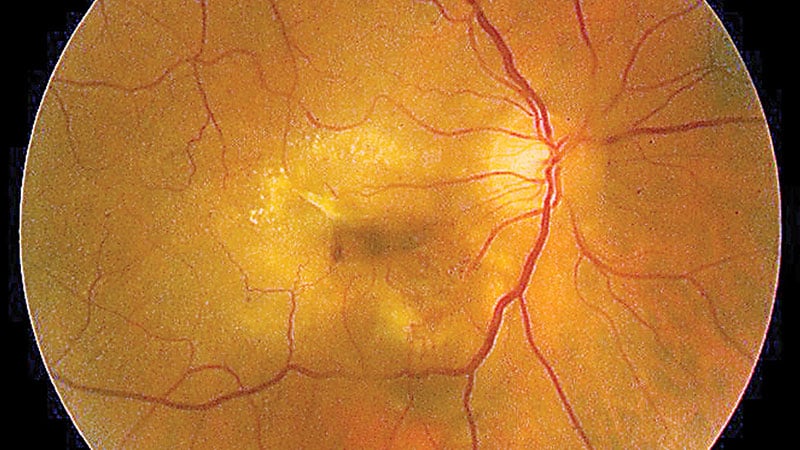FDA OKs First Drug for Geographic Atrophy, a Major Cause of Adult Blindness
The US Food and Drug Administration (FDA) has approved pegcetacoplan injection (Syfovre) as the first treatment for geographic atrophy (GA), a major cause of adult blindness.
Pegcetacoplan injection, from Apellis Pharmaceuticals, is intended for the treatment of people with geographic atrophy secondary to age-related macular degeneration. Geographic atrophy affects more than 1 million people in the United States and 5 million people worldwide, according to Apellis.
“The approval of SYFOVRE is the most important event in retinal ophthalmology in more than a decade,” said Eleonora Lad, MD, PhD, director of ophthalmology clinical research and associate professor of ophthalmology at Duke University Medical Center, in Durham, North Carolina, in a press release about the FDA decision. “Until now, there have been no approved therapies to offer people living with GA as their vision relentlessly declined. With SYFOVRE, we finally have a safe and effective GA treatment for this devastating disease, with increasing effects over time.”
Lad was the lead investigator on a clinical trial of pegcetacoplan that found that the drug reduced the growth of ocular lesions when compared with placebo injections. Two large trials of the injectable agent showed mixed results, and Apellis asked the FDA to delay its review of the company’s application for the new product.
Pegcetacoplan is approved for patients with geographic atrophy with or without subfoveal involvement. Clinical trials of the medication, which can be administered every 25 to 60 days, demonstrated maximum benefit between 18 and 24 months of initiating treatment.
The drug is not intended for use in people with ocular or periocular infections or active intraocular inflammation, according to Apellis.
Apellis plans to sell pegcetacoplan at $2190 per vial, the company said Friday, as reported by BioPharma Dive.
Source: Read Full Article
